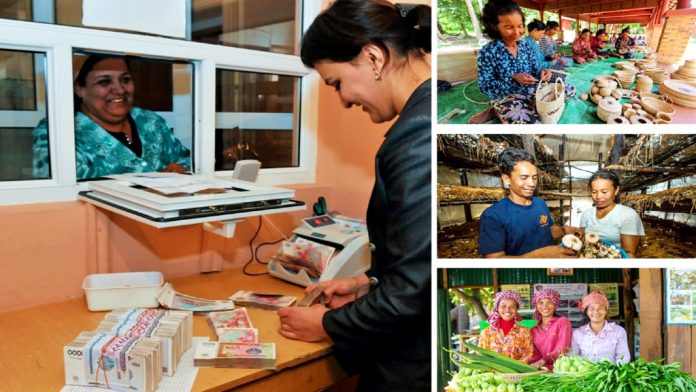In international development, securing funding for critical infrastructure and projects in impoverished nations remains a significant obstacle. Traditional funding methods often need to catch up, prompting the search for innovative and sustainable solutions.
In such cases, the potential of share markets is high, and they are typically associated with profit-driven enterprises. Leveraging the share market has transformative power as a strategic means to finance vital infrastructure and development initiatives in poor countries.
But, one has to understand the advantages and potential risks of utilizing the share market for various projects. With comprehensive understanding and research, policymakers, investors, and development practitioners can create the roadmap easily.
So, let’s learn about the strategies for leveraging share markets to fund infrastructure and development projects in poor countries.
Understanding the Landscape
Let’s take a look at how things are right now in poor countries when it comes to their basic structures and systems. Many places struggle with insufficient roads, schools, and hospitals.
Traditional funding models often need help fixing these issues. Because accessing traditional funding has a lot of barriers, they often can’t give enough money, and the development process can be slow and even stall sometimes.
Here are the Issues with Traditional Funding Models-
Limited Funding
Traditional methods often result in insufficient funds, making it challenging to address the extensive needs of infrastructure development adequately.
Slow Process
The conventional funding approaches tend to be slow. It causes delays in conducting crucial projects and hinders overall progress.
Bureaucratic Hurdles
There are often bureaucratic obstacles and complex procedures in the traditional funding systems, making it difficult for funds to reach the intended projects promptly.
Dependence on Aid
Poor countries might heavily rely on aid, which can be inconsistent and may not provide a sustainable, long-term solution for development needs.
Lack of Flexibility
The rigid nature of traditional funding models may limit flexibility in adapting to the unique requirements of different development projects.
High Debt Levels
Some poor countries use high debt levels to fund projects, leading to concerns about debt sustainability and future repayment challenges.
Inequality in Resource Allocation
The traditional methods may contribute to the unequal distribution of resources, with certain regions or communities being left out of development initiatives.
The Role of Share Markets in Development
Share markets offer a unique way to gather funds for development projects. Selling shares or bonds is all you have to do to collect a diverse range of investments for the project.
Here are some key benefits of using the share market to raise funds for the project.
Increased Funding Opportunities
Share markets attract a diverse range of investors, unlocking a larger pool of funds for development initiatives.
Market-driven Efficiency
Operating within a market framework ensures efficient allocation of resources to projects with the most significant impact.
Global Access to Capital
Listing projects on share markets provide access to international capital, fostering global partnerships for development.
Public Participation
Share markets involve the public, allowing communities to invest in and take ownership of projects, creating a sense of shared responsibility.
Strategies for Attracting Investments Through Share Market
Investors are crucial for making development projects complete. We can use smart strategies to get them interested in share markets. Here’s how-
Clear Project Vision
A clear and compelling vision for the development project helps investors understand its purpose and potential impact. That’s why the project details should be very precise while going public.
Transparent Communication
Keeping investors in the loop through clear and honest communication builds trust and confidence in the project. Companies can do it by giving regular updates on time.
Government Support
When the government strongly supports a project, it signals stability and commitment, making it more attractive to investors.
Favorable Regulatory Environment
Creating friendly rules and regulations for investors encourages participation in share markets for development projects.
Risk Mitigation Plans
Solid plans to handle potential risks reassure investors, showing that the project team is well-prepared.
Demonstrated Social Impact
Highlighting the positive social impact of a project can attract socially conscious investors who want to make a difference.
Incentives for Investors
Offering perks or incentives, such as tax breaks or exclusive benefits, can sweeten the deal for potential investors.
Mitigating Risks and Challenges
Using share markets for development comes with risks. Here’s how to handle them-
Diversified Investment Portfolios
Spread investments across different projects to reduce the impact of a setback on a single project.
Thorough Due Diligence
Conduct detailed research before investing to identify potential risks and make fruitful decisions.
Effective Communication
Maintain transparent communication with investors to manage expectations and address concerns promptly.
Continuous Monitoring
Regularly monitor project progress and market conditions to adapt
strategies and mitigate emerging risks effectively.
Contingency Planning
Develop robust contingency plans to address unexpected challenges, ensuring projects remain on track despite unforeseen obstacles.
Conclusion
Finding out how share markets can fund development projects shows a hopeful way to finance infrastructure in poor countries. It will help the development project progress faster. Highlighting sustainability and sharing markets are good tools for boosting economic and social progress. We need more research and discussions to develop better strategies and new financing ideas, ensuring a significant positive impact on global development.




